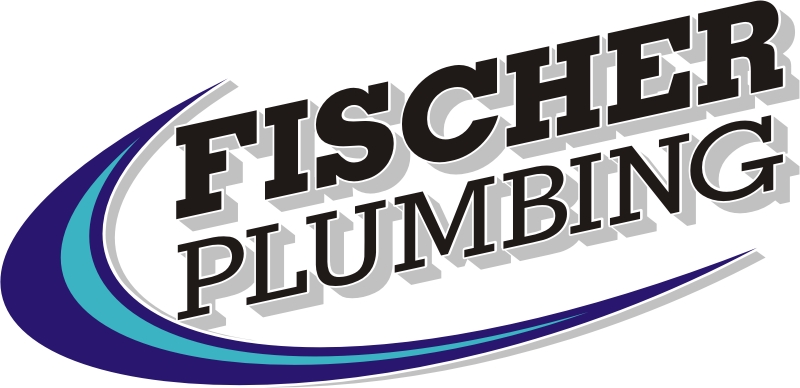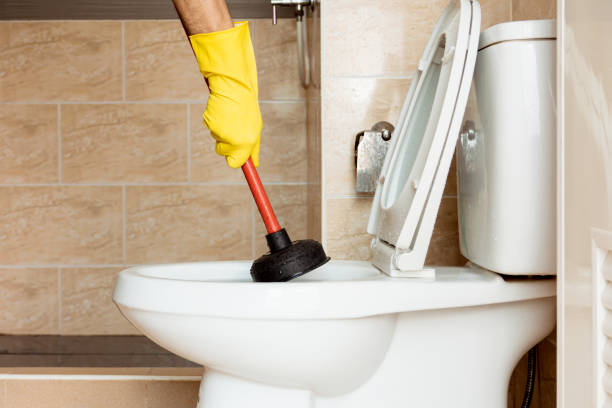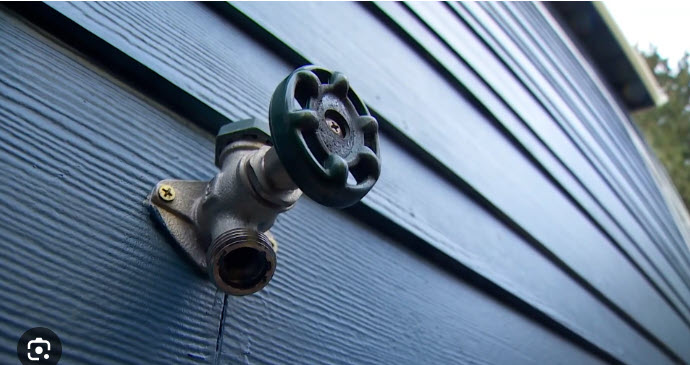Why Does My Toilet Keep Clogging
It can be very frustrating when your toilet keeps clogging and finding out the reasons is much more. The common reasons a toilet is getting clogged depend on what we are flushing down in the toilet and sometimes the toilet itself can be an issue. Fischer Plumbers in WA are licensed plumbers, explains the reasons briefly in this article.
What Exactly Is Causing Your Toilet Clogs
Toilets are designed to handle two things: human waste and toilet paper. Adding anything else to the mix may lead to a blocked pipe, which tends to bring up distasteful material that was best left forgotten. There are a few plumbing ways to avoid this problem entirely, mostly by diligence and making sure your toilet only receives the correct materials.
Paper Towels
Paper towels are often the main culprit when it comes to a serious blockage. It might seem like the same thing as toilet paper, but there’s a crucial difference: toilet paper is designed to break upon contact with water so that it goes down the pipe without a hassle. Paper towels, malleable as they may be, have more of a tendency to stick together. It will form into clumps and eventually turn into a serious blockage.
Different Problems That Can Happen Due to Paper Towels:
It’s not impossible, however. An excessive amount of toilet paper can cause a blockage in even the most stalwart of pipes, so you’d do well to limit your usage in this regard. Though more modern toilets are better at dealing with clogs, they aren’t immune and will block just as easily if abused. An ‘invisible block’ occurs when you can’t see the blockage, usually due to it being deeper in the pipe. This causes slow water drainage or none, and they’re more difficult to get to.
Solution:
Obviously, the first step is never to put paper towels into a toilet. A few other substances could cause grief down the line, such as feminine hygiene products (usually they have a dedicated bin), wet flushable wipes, or even tissues. Stick to toilet paper exclusively, and it’s hard to go wrong.
Older Low Flow Toilet
If you have old low-flow toilets in your house, that may be a possible reason your toilet keeps clogging. Early low-flow toilets were not capable of creating the pressure required to flush down materials through the toilet trap and drain. Hence, whenever you flush a disposable material into the toilet, it will not pass through the drain and get stuck, resulting in a large clog blockage.
Different Problems That Can Happen Due to Old Low-Flow Toilets:
Due to the blockage, your low-flow toilet will overflow the water. Also, the pressure created from the blocked water in the drainpipe can cause water leaks.
Solution:
To prevent frequent toilet clogging issues with your old low-flow toilet, you can replace it with a modern toilet. New-generation toilets maintain proper pressure that helps in a complete flush of waste material into the toilet drain. If this is not possible, you should avoid using an excessive amount of toilet paper and other materials to flush into your toilet.
You can hire a professional plumber like Fischer Plumbing to help you with installing an upgraded first-generation toilet model or to solve the toilet pressure issue with your plumbing system.
Flushing Non-Flushable Items
Flushing Non-Flushable items like baby wipes, menstrual products, dental floss, paper towels, and tissues can cause a toilet clogging issue and lead to a blocked pipe.
Items that should be flushed down toilets are human waste and toilet paper. Toilets become clogged when other types of paper or hygiene products are flushed because they are not meant to be disposed of in this way.
This clog issue affects many households. People have been misinformed about what can be flushed – “flushable” wipes are some of the biggest offenders plumbers see today! Some people have habitually flushing all bathroom waste down the toilet, including non-flushable items, which causes clogs.
Different Problems That Can Happen Due to Flushing Non-Flushable Items:
Flushing Non-Flushable items can quickly block sewer pipes and cause major plumbing problems in your community’s sewer or your home’s septic tank system.
Solution:
Sadly, if you have disposed of any non-flushable item in your toilet and it got stuck, you can use a long-flanged plunger to dislodge the clog from the toilet drain. Another substitute tool is a toilet auger, which can easily remove the clogged material and clean the drain.
Try to instruct your family about what is flushable and non-flushable. If there are children at your home, try to teach them what to flush and not to flush in the toilet.
Excessive Toiltet Paper Use
If you’re searching for how to fix a toilet that keeps clogging, then preventing excessive flushing of toilet paper can help you. We know you’re thinking about how TP, which is a flushable item, can clog your toilet. We admit that toilet paper is easily flushable, but it is good when you use the proper quantity. Flushing excessive amounts of toilet paper down the drain creates a huge bulk of clog which will not dissolve properly and can clog your toilet.
Different Problems That Can Happen Due to Excessive Toilet Paper Use:
Toilets repeatedly clogged from toilet paper can cause slow-filling or running toilets, toilet leaks, etc.
Solution:
The best possible solution to prevent your toilet from clogging because of excessive use of toilet paper is to buy 3 to 4 squares of toilet paper from any general store. We are talking about the smaller sizes of TP. Also, you can mark the proper size of the toilet paper on the wall for use and suggest to your house members to use the same size of fresh toilet paper to clean the potty.
Instead of using long toilet paper try to use them by folding it to create a thick size according to your need. This will definitely prevent your toilet from clogging.
Clogged Toilet Trap
Maybe you don’t know about Toilet Traps, but now you will! Toilet traps are S-shaped, present between the toilet bowl and the drain line. Their purpose is to trap an object and prevent it from moving to the drain line to cause a clog.
Different Problems That Can Happen Due to Clogged Toilet Trap:
Clogged toilet traps can cause overflow issues and lead to broken drain pipes.
Solution:
To prevent clogging into the Toilet Traps, you can use a plunger. You have to put the mouth of the plunger on the toilet bowl, and slow-motion the plunger in and out to create pressure in the water that will help to loosen the clogged material. After a trial of five to six times put out the plunger flush the toilet and see if the clogged issue is solved.
Blocked Toilet Vent
Your toilet may become clogged if the toilet vent is blocked. The toilet vent allows fresh air to enter your home’s plumbing system, increasing flushes pressure. If the vent becomes blocked, the toilet loses flushing pressure and becomes more susceptible to clogs.
Different Problems That Can Happen Due to Clogged Toilet Trap:
A blocked toilet vent can cause problems, such as gurgling noises, slow drainage, and sewer odors indoors.
Solution:
Clogging of Toilet vents usually happens from the opening roof or from the point where they are connected to your home’s sewer line. To prevent this type of clogging, you should consider checking your roof first.
- Climb on the roof with a ladder on your house roof and find a toilet vent from where it is connected through the roof. Generally, it is located on the top, where the toilet sitting is present.
- Now remove the vent cap and clean the vent if there is any debris or another blockage material present. You can use a spray nozzle on your garden hose to pressure the water from it, which will help to drain any clogged material through the vent.
If the blockage is still not cleared then you may require tools like a drain auger. But it is better to call a professional plumber who has all the tools and experience of handling toilet clogging issues.
Unclog Your Toilet With Professional Help
When you notice a blockage, immediate action should follow. Every minute the toilet spends blocked increases the risk of spillage, or even a burst pipe – a much more serious problem.
With a few tools and some basic knowledge of exactly what it is you’re looking at, removing a toilet blockage shouldn’t be too difficult. If the problem advances to the point of a burst pipe, then it’s time for some professional help – but you can prevent this with diligence, and by keeping track of what should and should not be getting flushed.

Call The Professionals
Call Fischer Plumbing Right Away And Get The Best Sewer Line Repair Service At Your Doorstep.









